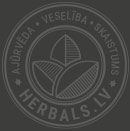Products
- Ayurvedic tea
- Indian teas
- Supplements
- Oils and drinks for health
- Facial Care
- For Skin
- Dental care
- For personal hygiene
- Sport and Yoga
- For Hair Health
- For massage
- Healthcare
- For Women
- Supplements for Men
- Aromatherapy Essential Oil
- Incense sticks
- Indian Food
- Vegan
- Superfoods
- For meditation
- For home
- New Products
- Specials
- Ayurvedic Herbs
- Wholesale
- Gifts and Kits
Browser notifications:
TOPINAMBUR powder AKCIJA -30%
Topinnambur powder
Сountry or origin: Czech, EU
Net weight: 500g
Jerusalem artichoke is a bumpy, fleshy, root vegetable of sunflower family plants. Its underground nutty, flavorful, starch-rich root is eaten much the same way like potato in many parts of Western Europe and Mediterranean regions.
• Jerusalem artichoke is moderately high in calories; provides about 73 calories per 100 g, roughly equivalent to that of potatoes. The root has negligible amounts of fat and contains zero cholesterol. Nevertheless, it's high-quality phyto-nutrition profile comprises of dietary fiber (non-starch carbohydrates), and antioxidants, in addition to small proportions of minerals, and vitamins.
• It is one of the finest source dietary fibers, especially high in oligo-fructose inulin, which is a soluble non-starch polysaccharide. Inulin should not be confused for insulin, which is a hormone. The root provides 1.6 mg or 4% of fiber. Inulin is a zero calorie saccharine, and inert carbohydrate, which does not undergo metabolism inside the human body, and thereby; make this tuber an ideal sweetener in diabetics and dietetics.
• Soluble as well as insoluble fibers in this tuber add up to the bulk of food by retaining moisture in the gut.
• The tuber contains small amounts of anti-oxidant vitamins such as vitamin C, vitamin A, vitamin E. These vitamins, together with flavonoid compound like carotenes, helps scavenge harmful free radicals, inflammation and viral cough and cold.
• Further, Jerusalem artichokes are a very good source of minerals and electrolytes, especially potassium, iron, and copper. 100 g of fresh root holds 429 mg or 9% of daily-required levels of potassium. Potassium is a heart friendly electrolyte which brings reduction in the blood pressure and heart rate by countering pressing effects of sodium.
• 100 g of fresh sunchoke contains 3.4 mg or 42.5% of iron, probably the highest amount of iron for the common edible roots and tubers.
• It also contains small levels of some of valuable B-complex group of vitamins such as folates, pyridoxine, pantothenic acid, riboflavin, and thiamin.
Ingredients: Dried ground tubers of Jerusalem artichoke.
How to use: Take 1 - 3 teaspoons during meals. During the reception it’s recommended to increase fluid intake and dairy products enriched with bifidobacteria.
Can be used in the preparation of culinary and bakery products, can be added to porridge.
Сountry or origin: Czech, EU
Net weight: 500g
Jerusalem artichoke is a bumpy, fleshy, root vegetable of sunflower family plants. Its underground nutty, flavorful, starch-rich root is eaten much the same way like potato in many parts of Western Europe and Mediterranean regions.
• Jerusalem artichoke is moderately high in calories; provides about 73 calories per 100 g, roughly equivalent to that of potatoes. The root has negligible amounts of fat and contains zero cholesterol. Nevertheless, it's high-quality phyto-nutrition profile comprises of dietary fiber (non-starch carbohydrates), and antioxidants, in addition to small proportions of minerals, and vitamins.
• It is one of the finest source dietary fibers, especially high in oligo-fructose inulin, which is a soluble non-starch polysaccharide. Inulin should not be confused for insulin, which is a hormone. The root provides 1.6 mg or 4% of fiber. Inulin is a zero calorie saccharine, and inert carbohydrate, which does not undergo metabolism inside the human body, and thereby; make this tuber an ideal sweetener in diabetics and dietetics.
• Soluble as well as insoluble fibers in this tuber add up to the bulk of food by retaining moisture in the gut.
• The tuber contains small amounts of anti-oxidant vitamins such as vitamin C, vitamin A, vitamin E. These vitamins, together with flavonoid compound like carotenes, helps scavenge harmful free radicals, inflammation and viral cough and cold.
• Further, Jerusalem artichokes are a very good source of minerals and electrolytes, especially potassium, iron, and copper. 100 g of fresh root holds 429 mg or 9% of daily-required levels of potassium. Potassium is a heart friendly electrolyte which brings reduction in the blood pressure and heart rate by countering pressing effects of sodium.
• 100 g of fresh sunchoke contains 3.4 mg or 42.5% of iron, probably the highest amount of iron for the common edible roots and tubers.
• It also contains small levels of some of valuable B-complex group of vitamins such as folates, pyridoxine, pantothenic acid, riboflavin, and thiamin.
Ingredients: Dried ground tubers of Jerusalem artichoke.
How to use: Take 1 - 3 teaspoons during meals. During the reception it’s recommended to increase fluid intake and dairy products enriched with bifidobacteria.
Can be used in the preparation of culinary and bakery products, can be added to porridge.
Also bought
 KEWRA WATER East End
Kewra water is a traditional Indian dessert flavouring
KEWRA WATER East End
Kewra water is a traditional Indian dessert flavouring
 HIMALAYAN SALT coarse -40%
Himalayan pink salt (coarse)
HIMALAYAN SALT coarse -40%
Himalayan pink salt (coarse)
 PAKORA MASALA Mangal
Spice for breading vegetables, fish or meat, deep fried
PAKORA MASALA Mangal
Spice for breading vegetables, fish or meat, deep fried
Top sellers
 CHIA seeds AKCIJA -30%
Chia seeds - a natural source of Omega 3
CHIA seeds AKCIJA -30%
Chia seeds - a natural source of Omega 3
 HIMALAYAN SALT Fine -40%
Himalayan pink salt (fine)
HIMALAYAN SALT Fine -40%
Himalayan pink salt (fine)
 CHIA seeds 1kg AKCIJA -30%
Chia seeds - a natural source of Omega 3
CHIA seeds 1kg AKCIJA -30%
Chia seeds - a natural source of Omega 3
This item has been added to cart.












